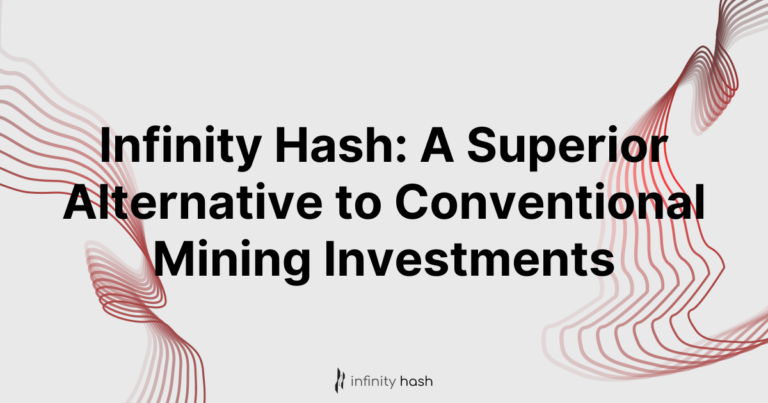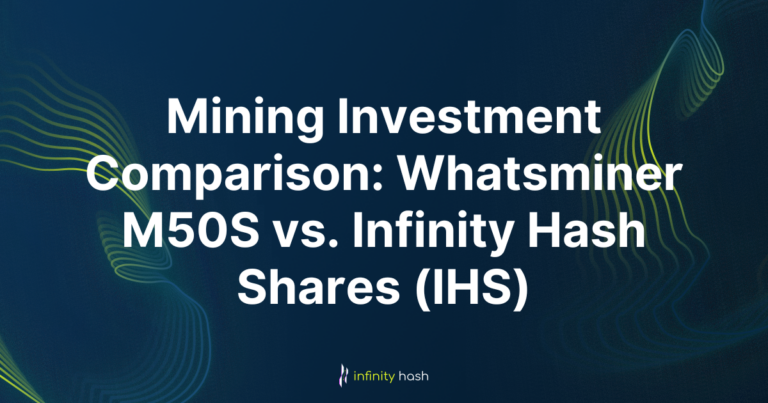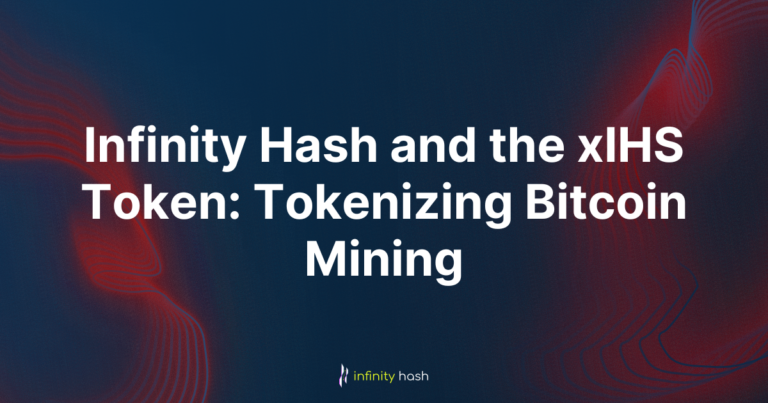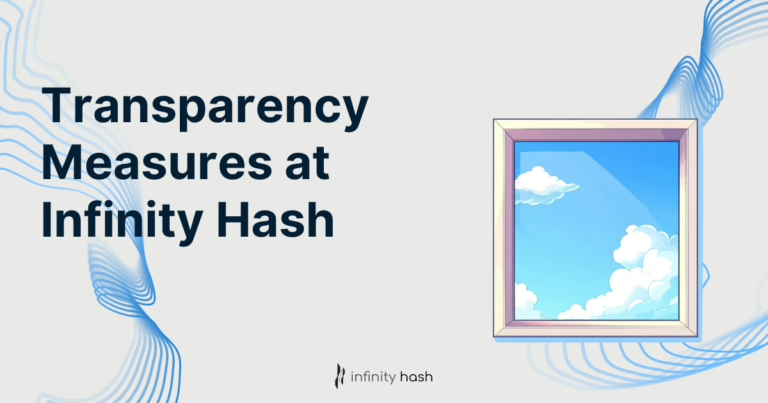Содержание
Background Information
Recently, there has been some confusion within the community regarding how the introduction of xIHS impacts the overall supply of Infinity Hash Shares (IHS) and whether this could lead to dilution. Specifically, some concerns have arisen from observing the number of xIHS tokens created, visible through blockchain explorers. To address these concerns and clarify how the xIHS system operates, we have prepared this explanatory статья. Our goal is to dispel any doubts and provide a clear understanding of how the introduction of xIHS does not dilute the existing share supply.
Understanding xIHS and How It Works
xIHS is a tokenized version of Infinity Hash Shares (IHS) on the Solana blockchain. It allows IHS holders to stake their shares in a dedicated pool and receive xIHS tokens in return. These tokens represent the staked IHS, and accrue value over time as the mining rewards are reinvested into purchasing additional IHS within the pool. This creates a compounding effect, where the value of each xIHS token grows over time, offering an efficient way to hold and grow your investment without the need for daily transactions.
Moving from xIHS to IHS and vice versa
When you stake your IHS to receive xIHS, your IHS shares are locked in a pool, and xIHS tokens are issued to you in return. Since the staked IHS are locked, they cannot be moved and do not form part of the circulating shares. The xIHS you obtain replaces the IHS you had, which is now locked. The effects of this on the total share supply are:
- The IHS supply remains constant, with now some of it locked in the staking pool. The process does not issue or destroy any IHS.
- The supply of circulating shares is the same as well. Some IHS is locked, but a corresponding amount of xIHS is now free to move.
When you decide to unstake your xIHS to receive IHS, the process does not cause dilution either. Upon unstaking, your xIHS tokens are burned, and the corresponding IHS shares are released from the pool and returned to your account. Similarly to before, the IHS that is freed from the staking pool when unstaking xIHS, replace the burned xIHS. The supply of xIHS is reduced by the amount of xIHS unstaked, while the corresponding IHS from the pool is unlocked and circulating again. The effects on the total share supply are:
- The IHS supply remains constant, only some of the IHS that was locked now enters circulation.
- The supply of circulating shares is the same, as the process burns all xIHS corresponding to the IHS that now enters circulation.
Clarifying the Role of the Creator Wallet
Ok, so why do I see on the blockchain explorer that there are 800,000 xIHS? Doesn’t that add 800,000 shares thereby causing dilution?
No, the vast majority of these tokens are locked in the Creator wallet. These xIHS are frozen and do not enter the market at any point. They exist solely to be credited when users stake their IHS. The only xIHS supply that matters in terms of market dynamics is the circulating supply. Those are the xIHS tokens that are held in wallets other than the Creator wallet.
In essence, the whole system is designed to maintain the number of shares circulating constant. Shares might change their nature from IHS to xIHS, but the circulating amount is equivalent no matter how many staking and unstaking events take place.
Conclusion
In summary, both the staking and unstaking processes of xIHS are meticulously designed to prevent dilution. By ensuring that each xIHS token is backed by existing IHS shares and that no new IHS are created during these processes, Infinity Hash guarantees that both the IHS supply and the circulating amount of shares remain constant. Users may then choose whether they prefer to keep their shares in token form, or in shares on the platform.
The introduction of xIHS provides added flexibility and efficiency, all while maintaining the integrity of the Infinity Hash ecosystem. Additionally, the presence of xIHS in the Creator wallet should not be a cause for concern, as these tokens are frozen and reserved for staking purposes, with no impact on the circulating supply or market value.





